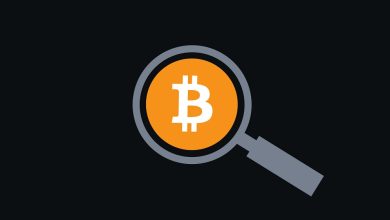The Modern Broker: Navigating the Complex World of Financial Intermediaries

Introduction: The Broker’s Enduring Relevance
In the grand theatre of global finance, the broker has always played a pivotal, often underestimated role. From bustling stock exchange floors echoing with frantic shouts to sleek digital platforms executing trades in milliseconds, brokers remain the vital link connecting individual investors, corporations, and vast capital markets
Far more than mere middlemen, today’s brokers are trusted advisors, market interpreters, and technology enablers. In an age when information is abundant yet trust feels scarce, the modern broker stands at the intersection of human insight and digital precision
What Exactly Is a Broker?
At its simplest, a broker acts as an intermediary, facilitating transactions between buyers and sellers for a commission or fee. Brokers exist in many sectors—stocks, commodities, real estate, insurance, even art. Their core purpose is the same: to connect parties, negotiate fair terms, and execute deals efficiently
In financial markets, brokers help clients access instruments they couldn’t easily trade alone. Whether it’s buying shares of a blue-chip company, speculating on oil futures, or hedging currency risk, brokers open doors to opportunities and liquidity
The Many Faces of a Broker
Though “broker” is often used generically, there are distinct types, each with unique expertise and responsibilities
-
Stock Brokers: Help clients buy and sell shares, mutual funds, and ETFs, often offering research and investment advice
-
Forex Brokers: Facilitate trading in global currencies, providing platforms and leverage for retail and institutional traders alike
-
Commodity Brokers: Connect traders with markets for raw materials like gold, oil, or agricultural products
-
Real Estate Brokers: Guide buyers and sellers through complex property transactions, negotiating deals and handling paperwork
-
Insurance Brokers: Advise clients on risk management, helping them find suitable coverage from various insurers
Each specialty demands deep market knowledge, regulatory awareness, and strong client relationships
The Evolution: From Phone Calls to Digital Platforms
Once upon a time, brokers thrived on personal networks, phone lines, and physical presence on trading floors. Deals were made through handshakes, handwritten tickets, and instinct honed over decades
Today, technology has revolutionized brokerage. Online trading platforms, algorithmic execution, and real-time data feeds have automated many tasks that once required human intervention
Key changes shaping the broker’s modern toolkit:
-
Online Trading: Retail investors now trade stocks and currencies with a few taps on a smartphone
-
Algorithmic Trading: Brokers leverage advanced software to execute high-frequency trades at optimal prices
-
Robo-Advisors: Automated investment services offer portfolio management at lower fees, challenging traditional advisory models
-
Global Access: Clients can trade markets worldwide, from emerging economies to established exchanges
Yet, despite this automation, human brokers remain crucial. Sophisticated investors often seek personalized insights, market nuance, and tailored strategies—qualities that algorithms alone cannot deliver
Why Clients Still Value Brokers
In an age of do-it-yourself investing, why do so many individuals and institutions still rely on brokers? The answer lies in trust, expertise, and convenience
-
Market Expertise: Brokers spend years mastering market trends, regulatory shifts, and investment products
-
Risk Management: They help clients understand complex instruments, manage exposure, and protect portfolios in volatile conditions
-
Negotiation Skills: In real estate or large trades, brokers negotiate better terms than most individuals could secure alone
-
Regulatory Guidance: Brokers navigate compliance requirements, reducing legal pitfalls for clients
-
Access to Liquidity: Some deals, especially in commodities or large stock blocks, need a broker’s network to match buyers and sellers discreetly
Regulation: Protecting Clients and Markets
Given their access to sensitive information and capital flows, brokers operate under strict regulatory frameworks. In most countries, brokers must be licensed and comply with rules set by financial watchdogs
These rules aim to:
-
Ensure brokers act in clients’ best interests
-
Prevent fraud and market manipulation
-
Maintain transparency and fair dealing
-
Safeguard client funds in segregated accounts
Reputable brokers embrace compliance not just as a legal obligation but as a pillar of trust
Challenges Facing Modern Brokers
Despite their enduring value, brokers face new pressures:
-
Fee Compression: Online platforms and robo-advisors push fees lower, squeezing traditional commission models
-
Technological Disruption: Innovations like blockchain and decentralized finance could bypass brokers altogether in some transactions
-
Regulatory Burden: Keeping pace with evolving global regulations requires constant investment in compliance systems and staff training
-
Market Volatility: Economic shocks and black swan events test brokers’ resilience and client relationships
Adapting means embracing technology without losing the human touch that distinguishes a trusted advisor from a mere trading platform
Choosing the Right Broker: A Client’s Checklist
For individuals and businesses alike, selecting a broker should never be a snap decision. Key factors to consider include:
-
Reputation: Look for a strong track record and positive client reviews
-
Regulatory Status: Ensure the broker is properly licensed in your jurisdiction
-
Range of Services: Match your needs—do you want full advisory, execution-only, or something in between?
-
Fee Structure: Understand commissions, spreads, and any hidden charges
-
Technology: Reliable platforms, robust security, and user-friendly interfaces matter, especially for active traders
-
Customer Support: Access to knowledgeable support staff can save time and prevent costly errors
The Future of Brokerage: Human Insight Meets Digital Precision
As artificial intelligence, machine learning, and decentralized platforms mature, the broker’s role will keep evolving. Many envision a hybrid model where technology handles routine tasks—trade execution, portfolio rebalancing—while human brokers focus on strategic advice, complex negotiations, and client relationships
Brokers who blend digital innovation with personal service will thrive. Those who resist change may find themselves overtaken by faster, cheaper alternatives
Conclusion: The Broker’s Unwritten Contract
At its essence, brokerage is about trust. Clients entrust brokers not just with money but with goals, dreams, and the expectation that someone will watch their financial interests as carefully as they would themselves
In a world awash with information yet starved of wisdom, the best brokers remain trusted guides. They decode complexity, open doors to opportunity, and help clients navigate markets that grow more global and intricate each year
So while the tools may change and the trades may fly at lightning speed, the broker’s true value endures—rooted in relationships, expertise, and an unwavering commitment to connect people with the financial opportunities they seek




